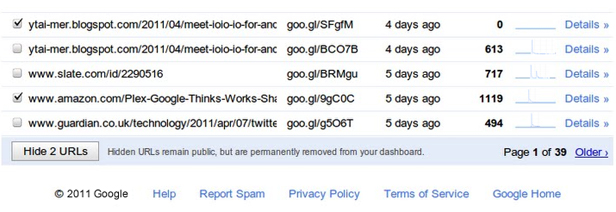With Google looking more at social media these days, in terms of ranking signals, a lot of webmasters continue to wonder how Google treats URL-shorteners in terms of SEO.
This isn’t completely new information, but it still seems to be a topic that continues to come up fairly regularly. Google’s Matt Cutts addressed the issue in a video posted to Google’s Webmaster Help YouTube channel.
“Custom URL shorteners are essentially just like any other redirects,” he explains. “If we try to crawl a page, and we see a 301 or permanent redirect, which pretty much all well-behaved URL shorteners (like bit.ly or goo.gl) will do, if we see that 301 then that will pass PageRank to the final destination.”
“So in general, there really shouldn’t be any harm to using custom URL shorteners in your SEO,” he continues. “The PageRank will flow through. The anchor text will flow through, and so I wouldn’t necessarily worry about that at all.”
“Now, just to let you know, if you look at, for example, Twitter’s web pages, many of those links have a nofollow link,” he adds. “So those links that are on the webpage, may not necessarily flow PageRank, but we might be able to find out about those links through some other way – maybe a data feed or something like that. But just URL shorteners, as far as how they relate to SEO, are not necessarily a problem at all.”
When we spoke with Gil Reich of Answers.com at SMX Advanced last summer, he suggested using shorteners that let you get keywords in the URLs.
Google actually updated its own URL shortener, goo.gl, with some new features this past week. New features include: copy to clipboard, remove from dashboard, spam reporting, and improvements in speed and stability.

“Even as we add features, we continue to focus on making goo.gl one of the fastest and most reliable URL shorteners on the web,” said Google software engineer Devin Mullins. “We’ll continue working hard to ensure that we add minimal latency to the user experience and extend our track record of rock-solid reliability—we’ve had no service outages since we launched last September.”
Anything to add to the URL-shortener/SEO conversation? Comment here.





 WebProNews is an iEntry Publication
WebProNews is an iEntry Publication